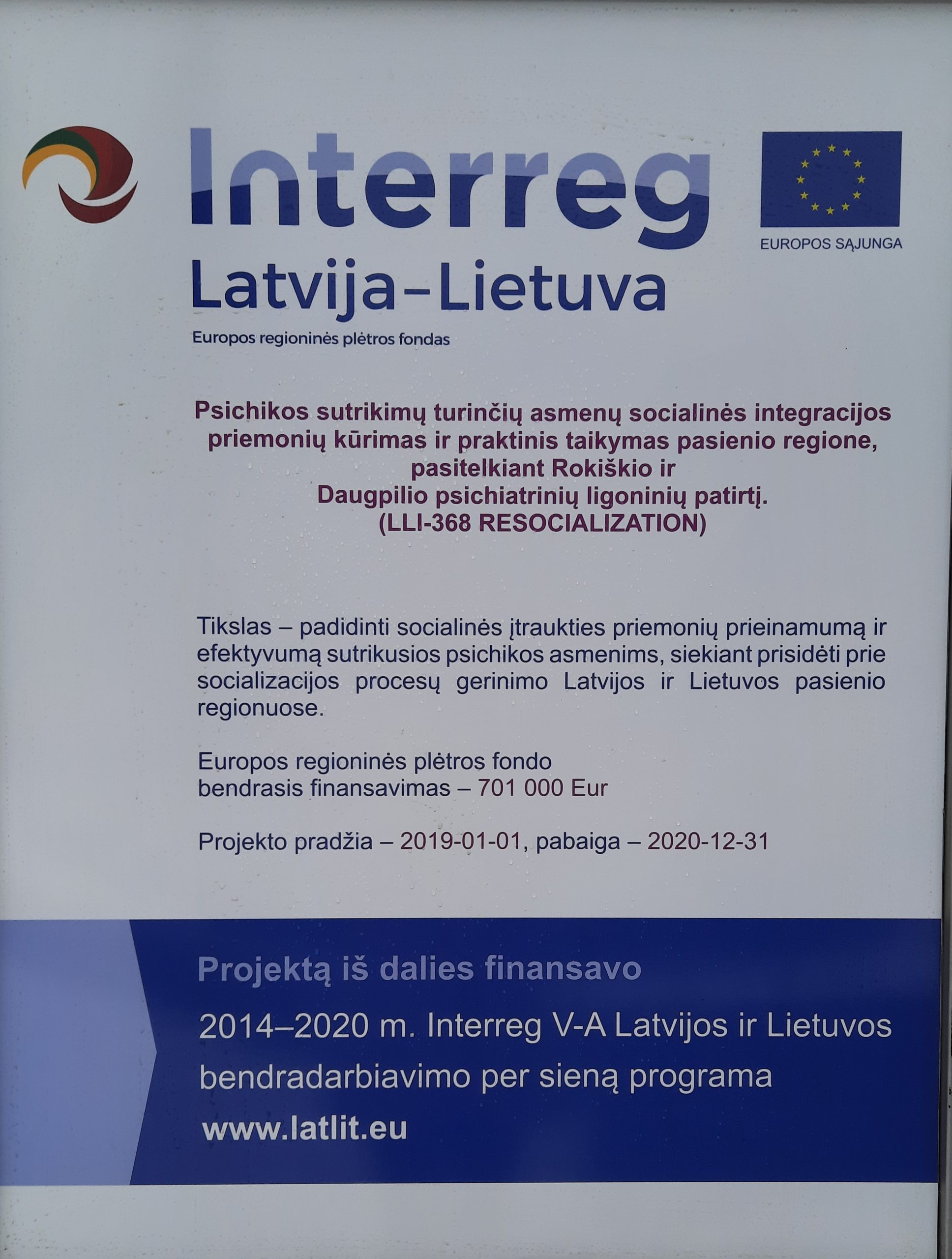-

Bringing neighbours closer
Welcome to the Interreg V-A Latvia–Lithuania Programme 2014–2020!
About the programme -

-

Features of the implementation of the Project LLI-368 and prospects for applying the achieved results
31 December 2020

Project Partners completed the project LLI-368 “The Creation and Practical Application of Social Inclusion Measures for Persons with Mental Disorders in the Cross Border Region, by using the Experience of Daugavpils and Rokiškis Psychiatric Hospital” and would like to summarize the achieved results.
The idea of this project was formulated in 2017, and although the practice of involving family members in the treatment/recovery process, by means of psychoeducation, is not new, as well as the use of “Case management”, the results of the project once again emphasized the critical importance of the integrated approach to the process of treatment, rehabilitation and subsequent social integration of mentally ill persons. That is, the social and psychological support both during the treatment time and after returning to families and to society.
Within the framework of the implemented project, it is possible to highlight the main points, which were of absolute importance for the socialization of mentally ill persons: the trained staff, family therapy, restoration of skills for the productive integration in the labor market, continuity of social rehabilitation, support for the return to society that directly depends on the infrastructural capacity of the respective institutions.
At the same time, it should be noted that the procedure for increasing the competence of staff and family members is an open and unfinished process; therefore, new knowledge and technologies will always be able to qualitatively complement the paradigm of social integration of persons with mental disorders.
Although the results of the project have been achieved (the target group of the project was reached), the availability and effectiveness of social inclusion measures can be proved only in the social and physical context without the epidemic restrictions.
In addition, a year after the completion of the project, in accordance with the requirements of the Programme, the efficiency of the developed social integration measures should be confirmed by the achievement of specific indicators within the target group; namely, the number of patients discharged from the hospitals will increase by 16 people in Rokiškis and 84 in Daugavpils.
Finally, from the point of view of forensic psychiatry, without the appropriate/legal measures of social integration, it is difficult to organize the adequate educational activities for family members with the participation in the process of treatment and rehabilitation, followed by the social integration of mentally ill persons. Thus, the measures developed within the framework of this project make it possible to involve family members in the process of social integration at a qualitatively new level; namely, direct participation in the process of psychoeducation, care and social support with the provision of productive feedback with medical institutions, which together increases the efficiency of socialization of mentally ill persons.
Last updated: 26.06.2024 15:10
